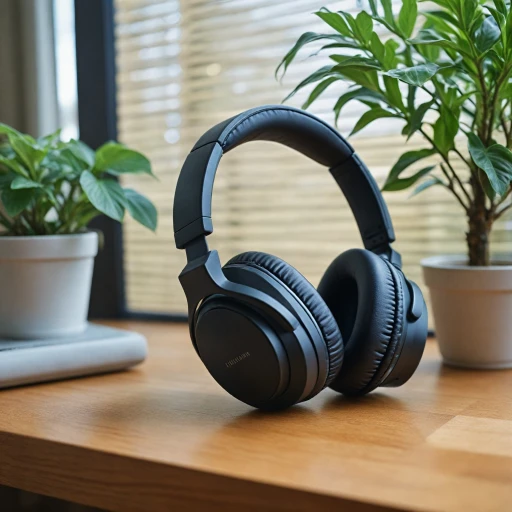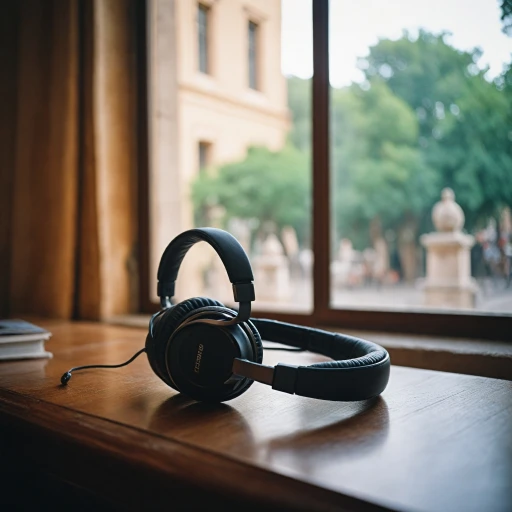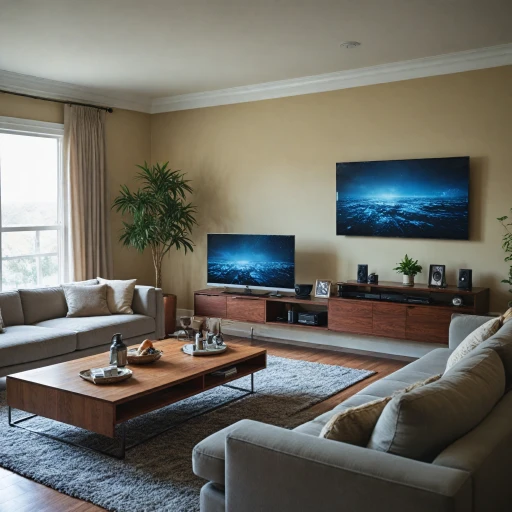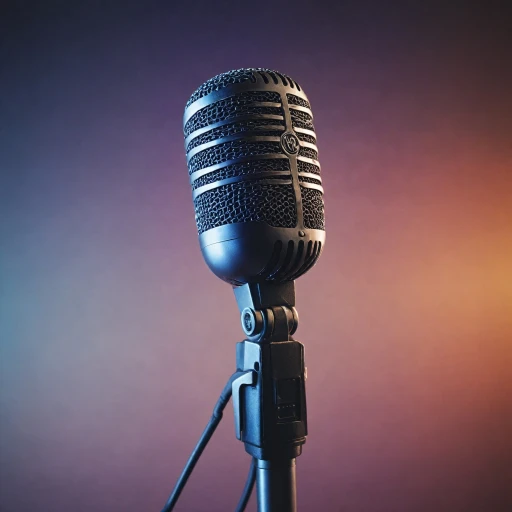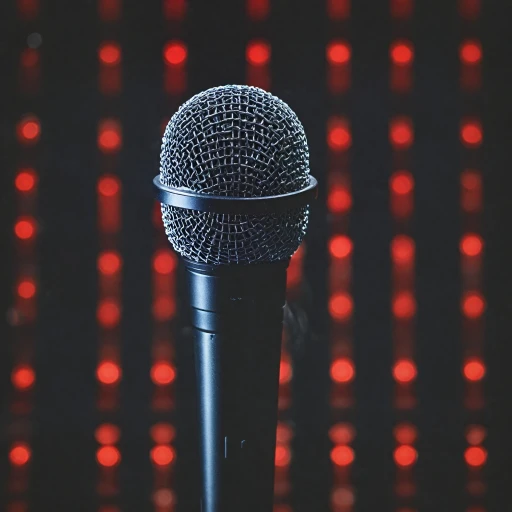Understanding Noise Canceling Technology
Unraveling the Intricacies of Noise Canceling Technology
In the realm of audio equipment, noise canceling headphones have emerged as a game-changer, especially for home use. Understanding the technology behind these devices can help you make an informed decision when selecting the best noise canceling headset for your setup. At the heart of this innovation is the ability to reduce unwanted ambient sounds through either passive or active noise cancellation methods.
Passive noise cancellation works by physically blocking out noise, leveraging the design of the headphones or earpieces to create a seal around the ears. On the other hand, active noise canceling technology uses microphones and soundwaves to counteract and neutralize external noise. This is achieved through the creation of "anti-noise" signals that effectively cancel out undesired sound waves.
For those working from home or managing call center responsibilities, a wireless headset with quality noise-canceling capabilities can significantly enhance sound quality during calls. Whether you prefer a wired headset for your office landline phone or a cordless phone setup for roaming around the home, the integration of noise canceling features ensures clear communication.
The shift towards Bluetooth headsets and USB connections reflects the desire for seamless integration with modern devices without compromising on sound quality or battery life. Particularly for those who balance multiple calls on different devices, noise canceling headsets provide a streamlined way to maintain focus and productivity amidst potential distractions.
As technology continues to advance, the affordability of noise canceling products is improving, allowing a broader audience to experience their benefits without breaking the bank. While prices can vary, comparing models based on key features like microphone quality, battery longevity, and connectivity options (USB, Bluetooth) can help you choose the right headphones for your needs.
Whether you're using headphones for personal entertainment or professional purposes, understanding these elements can help you maximize your audio experience at home. If you or someone you know is also looking to enhance TV sound quality for those with hearing impairments, further insights are available on enhancing TV sound.
Benefits of Noise Canceling Headphones for Home Use
Immersive Environment Right at Home
Noise canceling headphones can transform your home into a serene sanctuary, providing an immersive audio experience free from background noise. Whether you're on a conference call or enjoying your favorite music, the sound quality is vastly enhanced. This makes them invaluable for working from home or just unwinding after a long day.Advantages for Remote Work
Many of us are more accustomed to the notion of working home, and noise canceling headsets can enhance productivity here. Using a high-quality bluetooth or usb headset ensures that your calls are crisp and free from interruptions, even when using landline phones or a landline phone headset. Wireless headsets are especially convenient, allowing you the freedom to move around your office or home while staying connected.Importance of Sound Clarity
When choosing a phone headset for home use, clarity and microphone quality are vital. The best models will balance sound quality with a comfortable fit, making calls and entertainment more enjoyable. Brands like Plantronics and JLab Work offer various options, from wired headsets to advanced bluetooth headsets, many boasting excellent noise cancellation technology.Versatile Use Beyond Calls
Noise canceling headphones are not just for phone conversations. Whether you need a cordless phone headset for mobility or a usb headset for seamless integration with your computer, these devices accommodate various needs. Their versatility extends to enhancing media consumption, making them a smart choice for home entertainment setups.Choosing the Right Home Phone Headset
Factors to Consider When Selecting Your Home Headset
Choosing the right phone headset for your home setup requires evaluating several important factors. Understanding how you intend to use your headset can guide you to the perfect choice.- Type of Connection: Decide between wired and wireless headsets. A wireless headset offers flexibility with Bluetooth connectivity, freeing you from the constraints of cables. However, if you value consistent sound quality, a wired headset with USB might be the way to go.
- Noise Cancellation Features: For those working from home or in a shared space, noise canceling headphones can be a crucial feature, minimizing disturbances and enhancing focus. Comparing products based on their noise cancellation capabilities can help you choose the best option.
- Comfort and Fit: Because you'll likely wear your headset for extended periods, comfort is key. Look for models that offer adjustable headbands and cushioned ear cups for a snug fit.
- Microphone Quality: Ensure the headphones have a well-performing microphone to handle calls clearly. High-quality microphones, like those in Plantronics headsets, are essential for clear communication in professional settings.
- Battery Life: If you're opting for a wireless model, battery life is a critical consideration, especially if you plan on using the headset throughout the day.
- Versatility: Consider a headset that supports both home phone and landline phone connectivity. Models like the JLab Work are praised for their versatility, handling both wireless and wired connections effortlessly.
Common Challenges with Noise Canceling Headphones
Overcoming Barriers in Acoustic Shielding
When it comes to noise canceling headphones, users might encounter several challenges that can affect their experience and performance. These issues could arise from the technology itself or the way it's implemented in various headsets. To help you make the most of your purchase, it is important to understand potential obstacles and how to address them.
Interference Issues with Wireless Headsets
Wireless headsets, including Bluetooth models, can sometimes experience interference that affects sound quality. This can be more common in densely populated areas with numerous devices. To minimize issues, try keeping your Bluetooth headset up to date with the latest firmware updates provided by the manufacturer. Investing in models known for strong connectivity can also reduce interruptions during phone calls or music listening.
Battery Life Considerations
Battery life is another critical factor when using wireless noise canceling headphones, especially for those relying on them for long periods, such as in working home environments. Many headsets landline and Bluetooth models offer extensive battery life, but frequent usage can still lead to faster depletion. Plan out your usage schedule and consider a model with rapid charging capabilities to ensure your headsets are ready when you need them.
Ensuring Sound Quality
Despite the advanced noise cancellation technology, sound quality can vary widely between different products. Factors such as the quality of the microphone, speaker components, and the overall build of the headsets - wired or wireless, play a key role. Comparing specifications and user reviews can help you find a phone headset that offers balanced sound parameters, catering to your specific needs, whether it’s for a call center or an office setup.
Price and Value Evaluation
The price is often a deciding factor when choosing the right noise canceling headphones. While it's appealing to opt for the best price product, it might not always provide the required features and longevity. Consider the demands of your home and office environment, whether a landline phone setting or a cordless phone configuration, and balance price with quality. Brands like Plantronics are trusted for their reliability in both wired headset and wireless headset categories, often found in professional setups such as call centers.
By understanding these common hurdles and considering factors like battery life, sound quality, and price, you can make a more informed decision and enjoy your noise canceling headphones to the fullest. Each step towards resolving these challenges contributes to creating a calmer and more productive acoustic environment at home or work.
Maintenance Tips for Your Noise Canceling Headset
Keep Your Headset Running Smoothly
Maintaining your noise canceling headphones is crucial for ensuring the best sound quality and battery life, especially when you're working from home or handling important calls. Regular upkeep can prolong the life of your headset whether it's a wired or bluetooth model.- Cleaning: Gently wipe down the ear cushions and headband of your headphones with a soft, slightly damp cloth to remove any buildup of oils and dirt. Avoid excessive moisture, which can damage the electronics.
- Storage: When not in use, store your wireless headset in a safe, dry place. If your headset is foldable, use this feature to minimize the space it occupies. This habit is especially useful for office and home environments where space may be limited.
- Battery Maintenance: For bluetooth and cordless models, keep an eye on the battery life. It's best to charge your bluetooth headset fully before deep discharges occur to maintain optimal battery longevity.
- Caring for the Microphone: If you're using a headset with a microphone, like those popular in call center settings or headsets for landline phones, ensure the microphone is free of dust and debris to maintain quality during calls.
- Cable Care for Wired Headsets: If you own a wired headset, properly winding the cables can prevent tangles and potential damage to the internal wires. Consider using a protective case when transporting your headset.
- Firmware Updates: Stay updated with any firmware upgrades from the manufacturer, especially for wireless and USB headsets. These updates often include bug fixes and improvements in noise cancellation technology.

